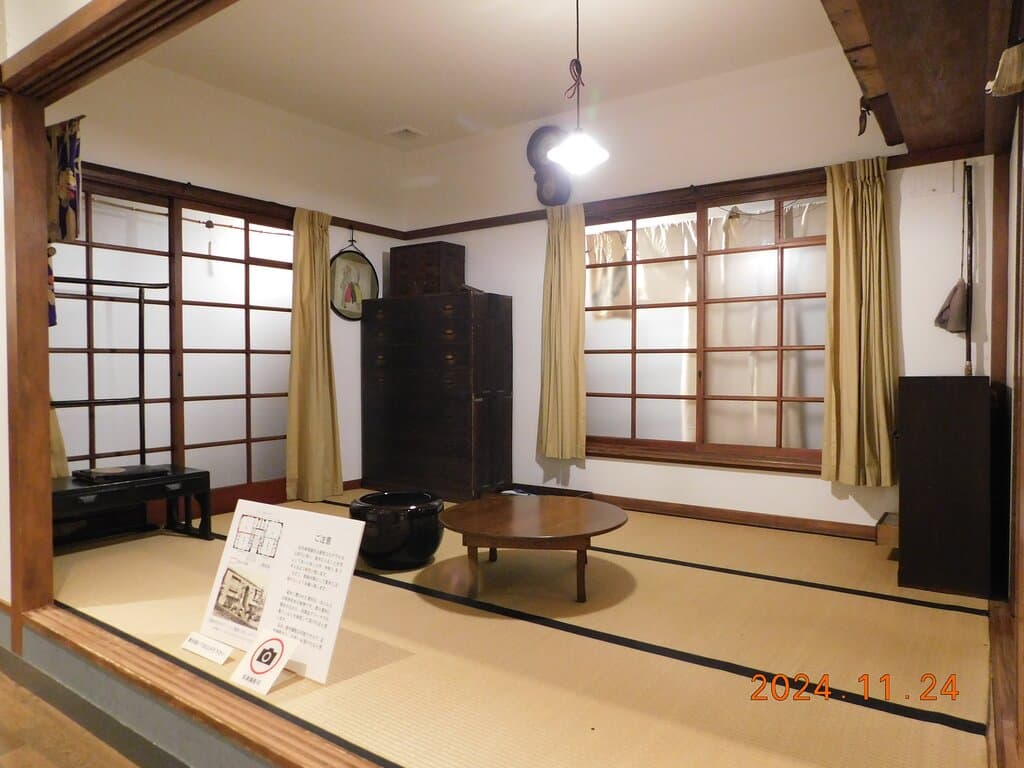
Shibuya Folk and Literary Museum
Discover Shibuya's transformation from rural past to literary hub and youth culture epicenter at this affordable local museum.
Highlights
Must-see attractions

Social
From TikTok & Reddit
Best Time
Fewer crowds, more reflection.

Shibuya Folk and Literary Museum
Best Time
Fewer crowds, more reflection.
Highlights
Must-see attractions
Discover Shibuya's transformation from rural past to literary hub and youth culture epicenter at this affordable local museum.
"At just 100 yen, this museum offers a surprisingly deep dive into Shibuya's rich history and literary past."
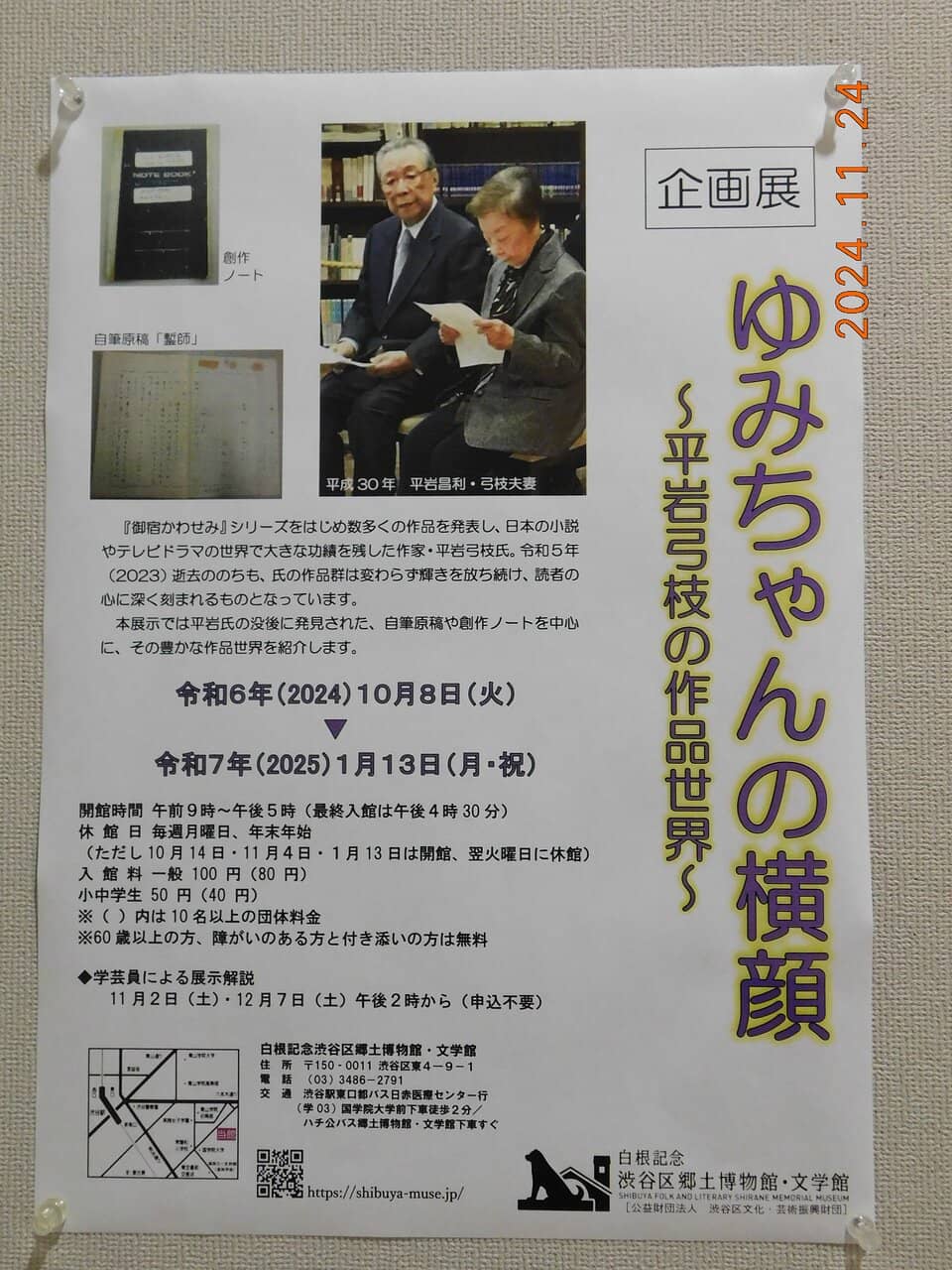
🎯 Unbeatable Admission Price
Only 100 yen! A must-visit for budget travelers exploring Tokyo's history.
📸 No Photos Allowed
Photography is almost always prohibited. Enjoy the exhibits with your eyes!
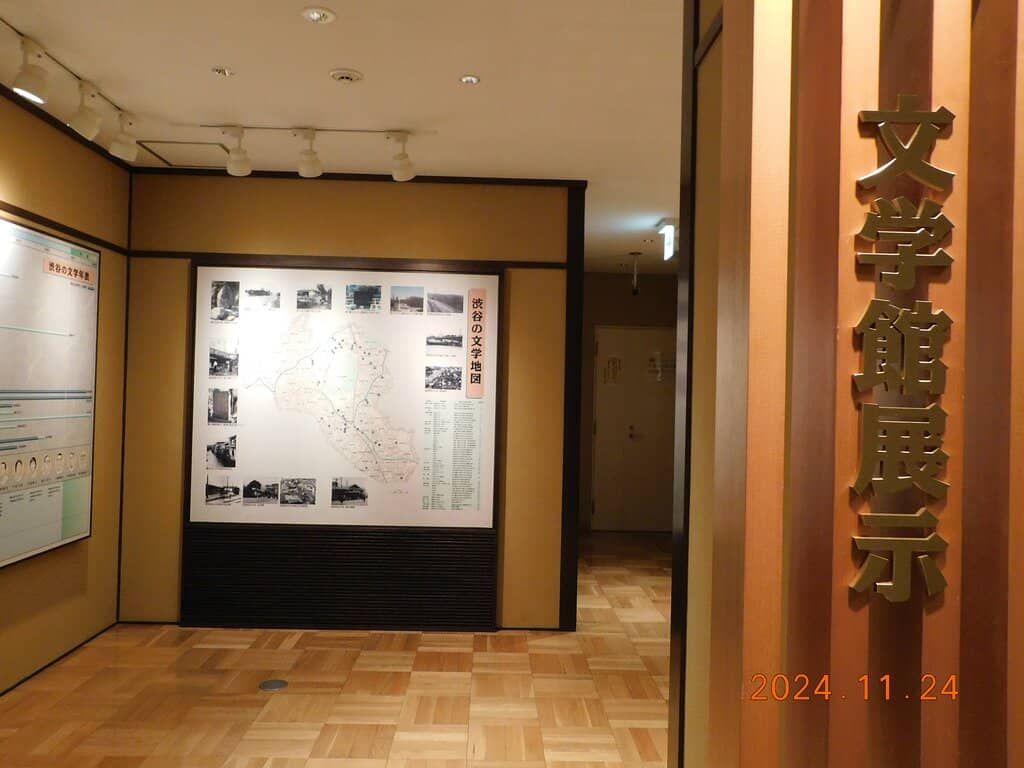
Highlights
Discover the most iconic attractions and experiences
Shibuya's Past Metropolis
Main Exhibition Hall
See idyllic photos of Shibuya, a stark contrast to today's bustling city, revealing its historical charm.
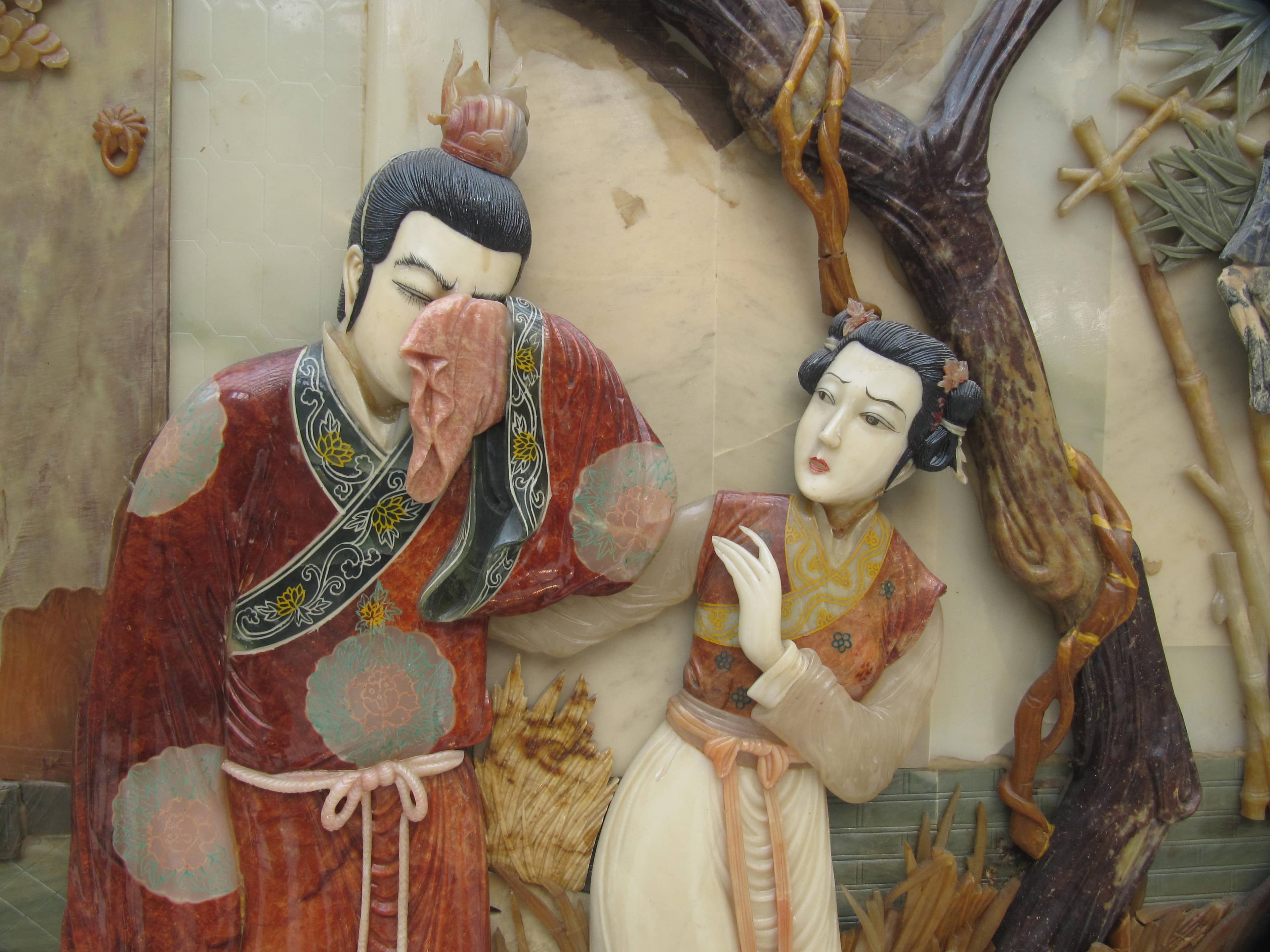
Literary Figures of Shibuya
Second Basement Floor
Discover surprising connections to numerous historical authors who once called Shibuya Ward home.
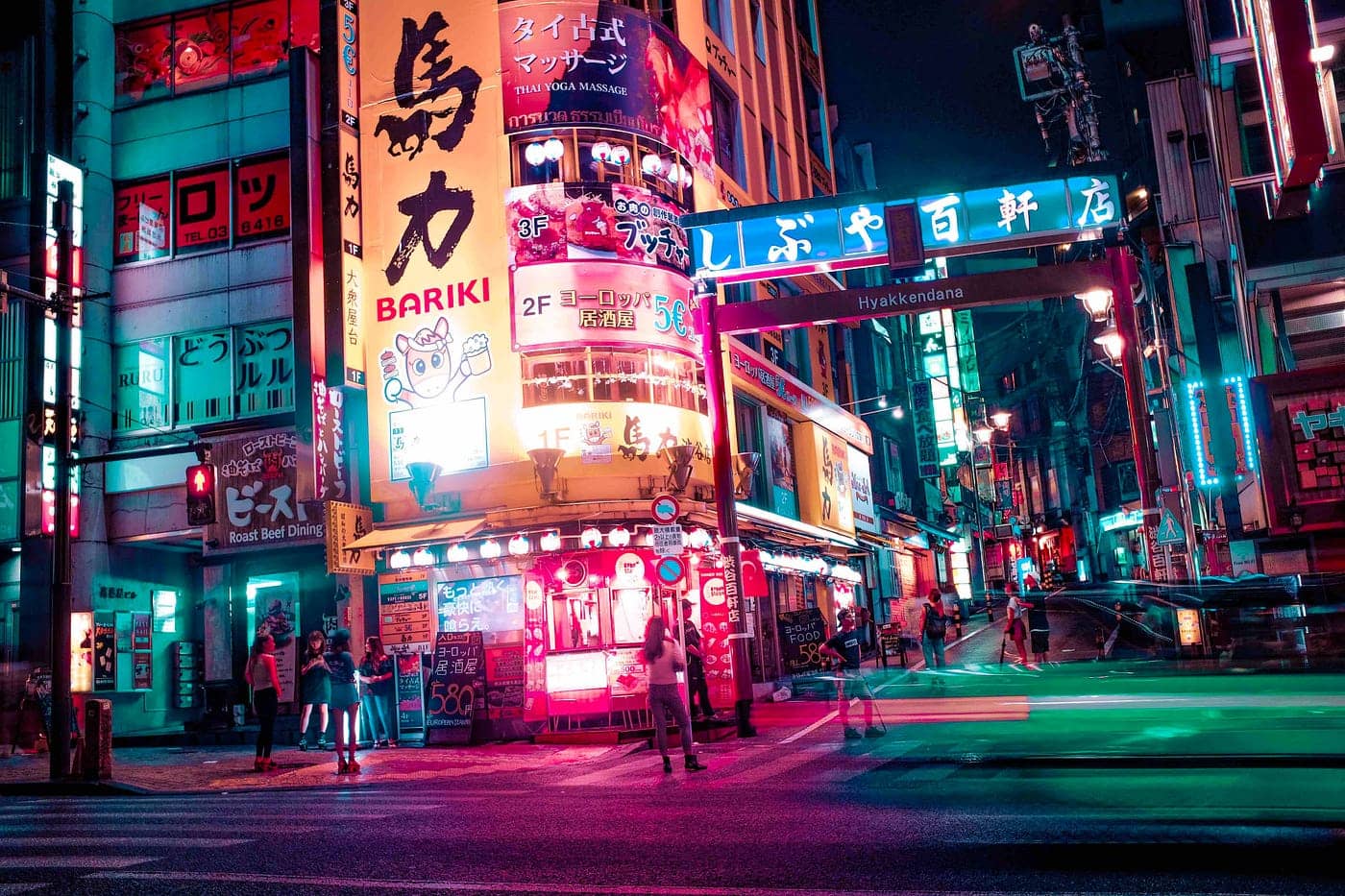
Youth Culture Evolution
Post-War to Modern Exhibits
Trace the evolution of Shibuya as a hub for youth culture, from gyaru girls to contemporary trends.
Plans like a pro.
Thinks like you
Planning Your Visit
Budget-Friendly Exploration
Photography Restrictions
Best Times
Insider Tips
from TikTok, Instagram & Reddit
🎯 Unbeatable Admission Price
Only 100 yen! A must-visit for budget travelers exploring Tokyo's history.
📸 No Photos Allowed
Photography is almost always prohibited. Enjoy the exhibits with your eyes!
🚶♀️ Combine with Nearby Museums
Visit the Kokugakuin University Museum of Literature and Hanawa Hokiichi Museum nearby.
🚌 Convenient Bus Access
The Hachiko bus stop is right in front, making it easy to reach.
Tips
from all over the internet
🎯 Unbeatable Admission Price
Only 100 yen! A must-visit for budget travelers exploring Tokyo's history.
📸 No Photos Allowed
Photography is almost always prohibited. Enjoy the exhibits with your eyes!
🚶♀️ Combine with Nearby Museums
Visit the Kokugakuin University Museum of Literature and Hanawa Hokiichi Museum nearby.
🚌 Convenient Bus Access
The Hachiko bus stop is right in front, making it easy to reach.
What Travellers Say
Reviews Summary
Visitors praise the Shibuya Folk and Literary Museum for its incredibly low admission fee and insightful look into the district's history, from its rural past to its literary connections and evolution as a youth culture hub. While photography is restricted, the exhibits offer a unique perspective on Shibuya's transformation. Some suggest more focus on modern youth culture.
"This is Shibuya Ward's local history museum. Admission is 100 yen.
There are very few areas where you can take photos.
I was able to see idyllic photos of Shibuya that are hard to imagine in today's metropolis, and it was great to see how gyaru girls have already become a part of history and are exhibited in museums.
In the past, there were 35 wards, and Shinjuku was divided into Yodobashi, Ushigome, and Yotsuya. Kitatama District was incorporated into Setagaya Ward in 1946. It made sense to me that Setagaya Ward, which has an image of being an upscale residential area, has areas that are so rural you'd never guess it was Setagaya! It was also fascinating to see evidence of a mammoth in Harajuku."
タロウタロウタロウ
"I've been touring the museums in Tokyo's wards, and I recommend this one in Shibuya. The museum is based on historical panels from ancient times to modern times. I was surprised at the unexpected discovery of ancient fossils in Shibuya. After the Edo period, the number of feudal domain residences gradually increased, and while agriculture flourished for a time, the area developed into a city of culture and universities. It seems that literary figures gathered there and many works depicting Shibuya were produced. I don't like going to this area anymore, but that's because I'm getting old. It's a city where lively young people always gather and culture is born. There is also a permanent exhibition of the sad memories of the war that should not be forgotten, and now there is a limited-time exhibition. The post-war to modern times are summarized briefly at the end, but as mentioned above, it is a base for youth culture, so a more detailed explanation would be fine! Suggestions to encourage a second visit
① I'll repeat myself, but actual exhibits focusing on youth culture since the postwar period
② Changes in words and ways of speaking focusing on popular phrases
③ It would be nice if there was a history of Shibuya Ward focusing on broadcasting stations, railways, and infrastructure!
④ It would be nice to have a moving exhibit using AI
That's all
Admission is 100 yen. It was very good."
めか
"I went to see the ``Nabeshima Marquis Family and Shoto'' exhibition, which is being held from Tuesday, January 21st to Sunday, March 23rd. The Hachiko bus stop is right in front of the hotel, so it's convenient. The Literature Museum on the second basement floor provides detailed information about writers who lived in Shibuya Ward. On the 2nd floor, there was a realistic reproduction of an old room at the Dojunkai Daikanyama Apartment. Admission fee was 100 yen for adults.
On Saturday, March 1st, from 2:00 to 4:00, there was a free lecture by Kyoko Uchiyama, associate professor at Kokugakuin University and Tochigi Junior College, on ``The Nabeshima Family and the Daily Life of Itsuko Nashimotogu''. It was great to see lots of easy-to-understand explanations using a large screen."
北幸代
What People Like
What People Dislike
Frequently Asked Questions
🚇 🗺️ Getting There
The museum is easily accessible via public transport. The nearest major station is Shibuya Station. From there, you can take a short walk or use local bus services. The Hachiko bus stop is conveniently located right in front of the museum, making it a breeze to find.
Yes, it's a manageable walk from Shibuya Station, or you can opt for a quick bus ride. The museum's proximity to the iconic Hachiko statue area makes it a convenient stop.
Several bus routes stop at the Hachiko bus stop, which is directly in front of the museum. Checking local bus schedules upon arrival at Shibuya Station is recommended for the most up-to-date information.
🎫 🎫 Tickets & Entry
Admission is incredibly affordable at just 100 yen for adults, making it one of Tokyo's best value museum experiences.
Advance booking is generally not required due to the low admission fee and the museum's size. You can typically purchase tickets upon arrival.
Opening hours can vary, especially with special exhibitions. It's best to check the museum's official website or local listings for the most current operating times before your visit.
Given the already minimal admission fee of 100 yen, specific discounts are rarely advertised. It's already a highly accessible attraction.
The Japan Rail Pass is for train travel and does not apply to museum admissions. You will need to pay the 100 yen entrance fee separately.
🎫 🏛️ Onsite Experience
Photography is almost always prohibited inside the museum. Visitors are encouraged to appreciate the exhibits visually and respectfully.
The museum features historical panels from ancient to modern times, showcasing Shibuya's transformation. You'll find exhibits on local history, literary figures who lived in the area, and even ancient fossils discovered in Shibuya.
While it offers historical insights, the museum's focus on panels and literary figures might be more engaging for older children and adults. However, the visual contrast of old Shibuya photos could be interesting for younger ones.
A visit typically takes about 1-2 hours, depending on your interest level and whether there's a special exhibition. It's a compact museum, perfect for a focused exploration.
While the museum primarily uses historical panels and displays, some past special exhibitions have included lectures and visual presentations that offer an engaging experience.
🍽️ 🍽️ Food & Dining
The museum itself does not have a restaurant or cafe. However, being located in Shibuya, you'll find an abundance of dining options just a short walk away.
Shibuya is a culinary hub offering everything from casual ramen shops and izakayas to trendy cafes and international cuisine. You'll have plenty of choices to suit any taste and budget.
📸 📸 Photography
Photography is strictly prohibited in most areas of the museum. This is to preserve the exhibits and ensure a focused viewing experience for all visitors.
While inside, photography is restricted, the exterior of the museum and the surrounding Shibuya area offer plenty of opportunities for photos, especially near the Hachiko statue.
For Different Travelers
Tailored advice for your travel style
👨👩👧 Families with Kids
For a more interactive experience, consider combining a visit with nearby attractions that might appeal more directly to children, or use the museum as a starting point for a discussion about Tokyo's history. The museum's location in Shibuya also means you're surrounded by family-friendly dining options and other entertainment after your historical exploration.
💰 Budget Travelers
Combine your visit with exploring the vibrant Shibuya Crossing and surrounding streets, which are free to experience. The museum's proximity to public transport also means you can easily access it without incurring extra travel costs. It's a perfect example of how to experience Tokyo's culture affordably.
Deep Dives
In-depth insights and expert knowledge
Shibuya's Transformation: From Rural Past to Urban Icon
One of the most striking aspects of the museum is its ability to showcase Shibuya's past in a way that feels both informative and relatable. Visitors are often surprised by the 'idyllic photos of Shibuya that are hard to imagine in today's metropolis.' This visual contrast serves as a powerful reminder of how much cities can change. The museum also touches upon the area's development as a center for culture and universities, laying the groundwork for its future as a hub for youth culture and innovation. The inclusion of unexpected discoveries, like ancient fossils found in Shibuya, adds another layer of intrigue to its long history.
Literary Echoes in Shibuya
Exploring this literary aspect provides a unique lens through which to view Shibuya. It reveals a quieter, more contemplative side of a district now known for its energetic atmosphere. The museum's efforts to highlight these literary figures encourage a second visit, as visitors may wish to delve further into the works of authors they discover. This focus on literary connections adds a significant dimension to the museum's portrayal of Shibuya's history, demonstrating that the area has long been a fertile ground for creativity and intellectual pursuits.
The Pulse of Youth Culture
While the museum provides a summary of post-war to modern times, some visitors suggest a more detailed exploration of youth culture, including changes in language and popular phrases. The idea of incorporating moving exhibits or AI-driven displays has also been suggested to further enhance the engagement with this dynamic aspect of Shibuya's identity. Despite these suggestions, the current exhibits offer a valuable overview of Shibuya's significance as a center for youth expression and innovation, making it a compelling part of the visitor experience.




Social
from TikTok, Instagram & Reddit